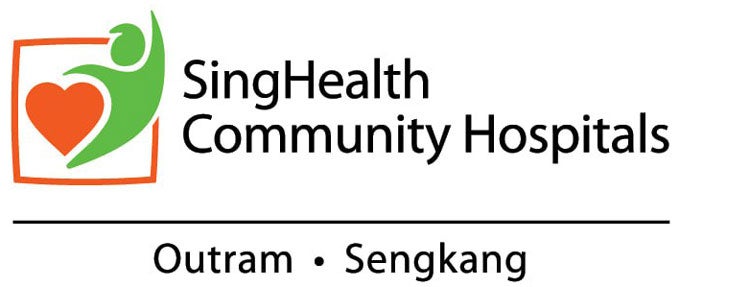SingHealth Community Hospitals will NEVER ask you to transfer money over a call. If in doubt, call the 24/7 ScamShield helpline at 1799, or visit the ScamShield website at www.scamshield.gov.sg.
Levelling Up
Did you know that at SCH we have nurses who specialise in a variety of nursing tracks? These tracks allow our nurses to grow their interest and talents to become experts in their chosen field.
Let's hear it from the nurses who don't just follow the crowd but lead the way!
 | |
Seah Hwee Ling, Senior Staff Nurse
Choosing to specialise in nursing informatics stems from my passion for both healthcare and technology. Ever since I was a nursing student, I had a love for data analytics. As I progressed in my nursing journey, I saw how data analytics could give us insights into our work processes. We can then take these insights and use them to improve efficiency and better patient care.
Implementing change is not always smooth sailing. I do encounter some challenges, such as resistance to change, technical issues, rapid technological advances, amongst others. Because of this, it is important to engage stakeholders early and provide comprehensive training and support. In this technological age where advancements are rapidly evolving, it is important to embrace continuous learning to stay updated with the latest advancements in healthcare and nursing practices.
 | |
Wan Nursharazilla, Assistant Nurse Clinician
In the dementia ward, I act as an advocator for the patients and their caregivers. I would share my observations about my patients' behaviours with my colleagues and multidisciplinary team so that they can understand and anticipate when or how the patient will act or behave differently. My work is also not limited to my patients. I engage with patients' caregivers to provide information on dementia care at home by linking them with relevant community services available upon discharge and educating them on managing aggressive behaviours at home.
One memorable experience I have was when a patient remembered me and my name on the day of her discharge. She expressed her appreciation for the care we have provided her during her hospitalisation. Working in a dementia ward requires a lot of patience and understanding - it is never straight to the point or routine work. There are days when your shift turns topsy turvy and there are days where they remember you and be cooperative. I salute all nurses in SKCH Ward 85 and OCH Ward 8C for their continued perseverance in engaging with patients with dementia.
 | |
Chan Ying Yue, Senior Staff Nurse
Being an Infection Prevention & Control (IPC) nurse is relatively new to me because I started out in the intensive care unit (ICU). As a nurse, we all have the basics of IPC but it was during my nursing career in the Intensive Care Unit that I gained a deeper understanding. I had a senior nurse who would guide me during our rounds and teach me about the correct procedures for setting up respiratory ventilators and catheters. But more importantly, she would also teach me how to manage the catheter lines to prevent infections. This sparked off my interest in IPC and I leaped at the opportunity to join the IPC team when a vacancy opened up.
I remember when I was an IPC newbie, it was a struggle in the beginning to adapt to the new job role. But I never gave up and continued to develop different skillset such as auditing, training, data analysis and worked on collaborating with many other departments. To my juniors who are just starting out in their IPC journey, I would say that it is a never-ending learning journey offering a diversity of knowledge. Try and relate your clinical practice with best IPC practices!
 | |
Yu Ya Loon, Staff Nurse
My experience in the palliative care ward taught me skills such as compassion and empathy when communicating with the patients and their family. One common misconception about working in the palliative ward is that "there is nothing we can do." In fact, there are a lot of things that we can do for our patients such as mindfulness exercises, relaxing and therapeutic activities or simply just being around them. It has been incredibly rewarding and fulfilling to take care of palliative patients until the end of their journey along with the patient's family.
For me, the most memorable part of working in the palliative ward was during my probation period. One of our patients, who was hospitalised in the ward for more than 3 months, had just passed away. Her children were very appreciative of all that the care team had done. They thanked us and even gave me a high five before leaving. I felt incredibly rewarded knowing I made a meaningful impact at such an important moment in their lives and that the thoughtful gesture will be cherished forever!
Keep Healthy With
@2025 SingHealth Group. All Rights Reserved.
















